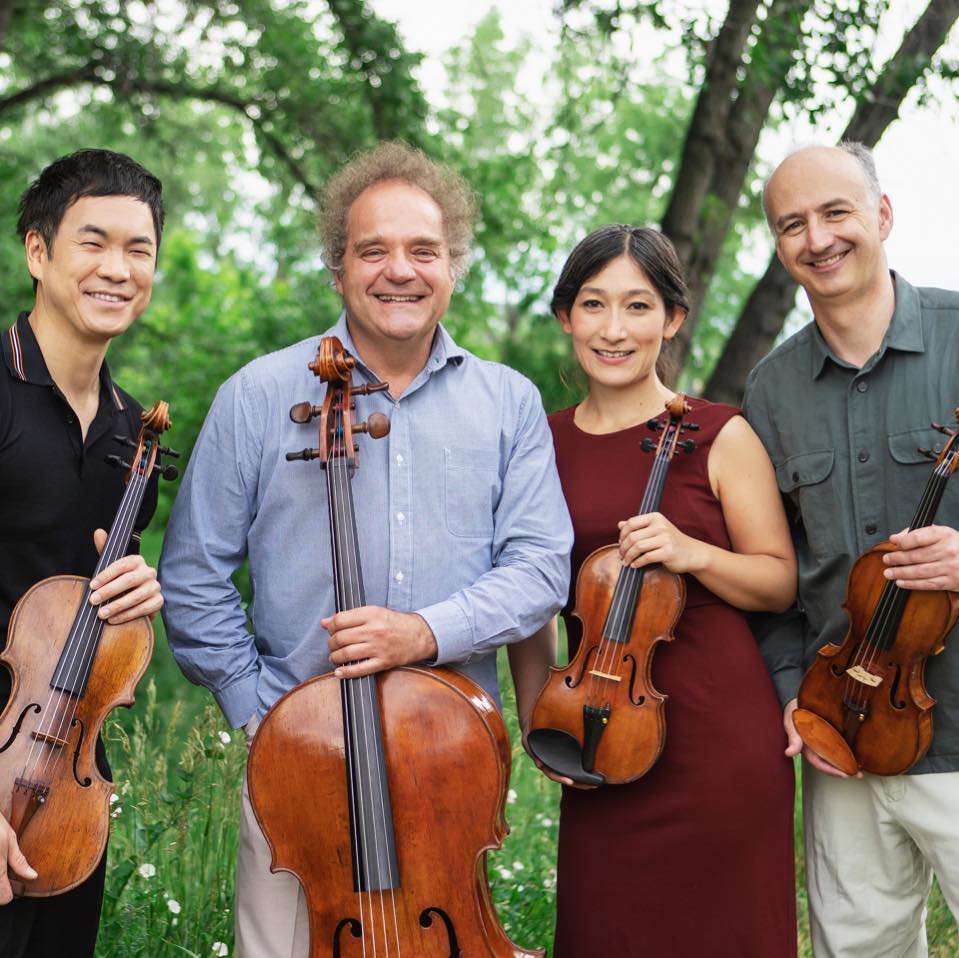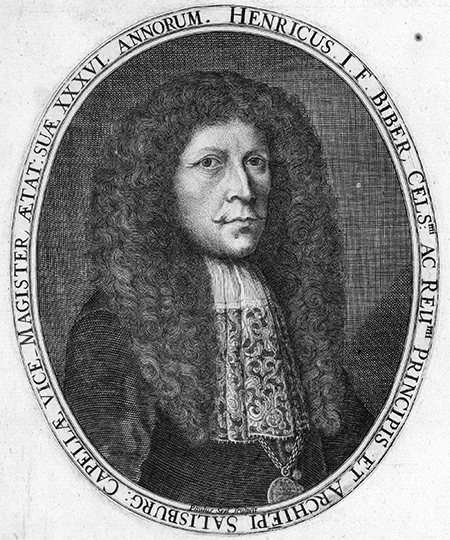by Jarrett Hoffman

•Trumpet and organ at Church of the Covenant this afternoon, and Takács Quartet with a guest at the Cleveland Chamber Music Society tonight
•News: the Final Round / Winners Concert for the Tuesday Musical Scholarship Competition, and The Cleveland Orchestra’s MLK Celebration and Honoring Black Composers program
•Heinrich Biber, using the company card to jet off for a new job, so to speak
HAPPENING TODAY:
The Church of the Covenant’s Tuesday Noon series features trumpeter Alex Lenhart and organist Jonathan Moyer in music by Alan Hovhaness, Mendelssohn, Piazzolla, Johann Ludwig Krebs, and Johann Baptist Georg Neruda. It’s free both in person and online.
Then at 7:30, the Cleveland Chamber Music Society hosts the Takács Quartet in works by Haydn, Coleridge-Taylor, and Schubert — his Quintet in C, which will also include guest cellist David Requiro. Tickets are available here.
More details in our Concert Listings.
NEWS BRIEFS:
Tuesday Musical’s 2022 Scholarship Competition will conclude with the Final Round / Winners Concert on Sunday, May 15 at 2:30 pm at the University of Akron’s Guzzetta Recital Hall. And new this year is an opportunity for the audience to vote on the People’s Choice Award.
The free program will feature twelve first- and second-place winners — a guitarist, a violist, a clarinetist, a bassist, a marimbist and steel drum player, a flutist, a tubist, a soprano, a trumpeter, a cellist, and two pianists — who are students at Oberlin Conservatory, the Cleveland Institute of Music, the University of Cincinnati College-Conservatory of Music, the University of Akron, and Kent State University.
The Cleveland Orchestra has announced details about this year’s Martin Luther King Jr. Celebration Concert and the Honoring Black Composers program, both of which were postponed from January due to COVID.
The MLK Celebration event, which will also include the presentation of this year’s MLK Community Service Awards, will take place on Saturday, June 4 at 7:00 pm, and free tickets will be available on a first-come, first-served basis beginning on Saturday, May 14 at 10:00 am. The concert will also be live-streamed for free on Adella and YouTube, in addition to the live radio broadcast on WCLV, WKSU, and Ideastream.
And the Honoring Black Composers program will receive three performances: an hour-long concert on May 24 at Karamu House (free tickets are available here), and half-hour concerts on May 27 and 28 at Rheinberger Chamber Hall available to those attending the Orchestra’s performances later on both evenings.
TODAY’S ALMANAC:

The Bohemian-born composer and violinist was working in Kremsier in present-day Czechia when his employer — Karl II von Liechtenstein-Kastelkorn, the Prince-Bishop of Olomouc — sent him on a work trip of sorts in the summer of 1670. Biber was to meet with Jacob Stainer in Absam to negotiate the purchase of new instruments from that famed luthier.
Anyone who’s ever been part of a classroom knows about the technique of taking the hall pass for a trip to the bathroom before going AWOL, wandering distant hallways of the school — freedom. Biber’s situation isn’t quite the same, though it brings to mind the same devious energy.
He never made it to Absam — at a distance of over 300 miles from Kremsier, no mere bathroom trip. Instead, he got about three-quarters of the way there before finding work in Salzburg under Archbishop Maximilian Gandolph von Kuenburg. Basically, Biber used the company card to jet off for a new job.
And it worked out pretty well for him. Within fifteen years he got married, began publishing his music, performed for Emperor Leopold I, and reached the post of Kapellmeister. After another decade, he had entered into the nobility — with the incredible title of Biber von Bibern — and was appointed to the position of Lord High Steward.
Of course, leaving one’s employment under Karl II without formal release is not quite the same as skipping out on one’s job at Carl’s Jr. Fortunately, Karl and Maximilian were on friendly terms, so no action was taken — though apparently Karl was hurt. (“Prince-Bishops having feelings too…” you can imagine him writing into his own Diary, the ink smudged by a fallen tear, or two…or ten.)
Notably, he did wait six years before officially granting Biber’s release — and perhaps as a form of mea culpa, Biber sent many a composition back to Kremsier in the early years after taking up his new position. (“I’m real sorry, boss…It’s not you, it’s me.”)
It was probably around this same time, the 1670s, when Biber wrote what is now his most famous work, often referred to as the Mystery Sonatas or Rosary Sonatas, which were only published in 1905. Highly virtuosic and programmatically intriguing, one of their most remarkable features is their frequent use of scordatura — the re-tuning of the strings.
“What I love about it is that it changes the resonance of the instrument so much,” Karina Schmitz told Daniel Hathaway in an interview in 2019, when she took turns with three other violinists playing several of the sonatas in a concert under the banner of Apollo’s Fire.
“You get these enormous four-note chords that are easy to play and make the instrument explode with sound. Then there’s a sonata where the tuning is super tight and compact, and creates a very intimate feeling.”
Watch a performance of the work’s Passacaglia here by Baroque violinist Elicia Silverstein.


